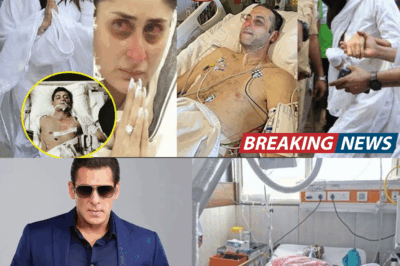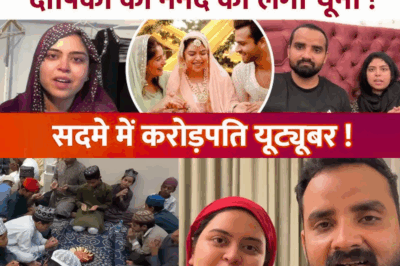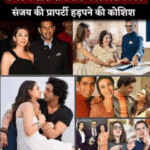The Hidden Cruelty: TV Star Rubina Dilaik Opens Up About Colorism Faced by Her Twin Daughters
In a world where celebrities often appear shielded from reality, Indian television actress Rubina Dilaik’s recent revelation has exposed a persistent and painful social issue—colorism, even against innocent infants. The star’s emotional testimony about her 19-month-old twin daughters, victims of hurtful color comparisons, has sent shockwaves across the nation, prompting urgent reflection on the way we perceive beauty and judge others—sometimes from a very early age.
Motherhood After Many Hardships
Rubina Dilaik is no stranger to challenges. After five years of marriage, she finally welcomed motherhood in 2023, giving birth to twin daughters. Her journey, filled with hope, anticipation, and eventual joy, soon turned bittersweet as she was forced to confront an ugly truth: even the youngest members of society were not safe from the lash of prejudice.
Rubina’s public persona is defined by authenticity. She routinely updates her fans, sharing happiness, struggles, and milestones through her popular blog and social media, allowing millions to witness the affectionate, candid moments of her life as a new mother. However, her latest revelation revealed a side of parenthood shadowed by unsolicited scrutiny—scrutiny that goes to the very core of how India treats skin color.
Even Babies Face Discrimination
“Both of my daughters are just 18-19 months old,” Rubina shared. “Even at this tender age, people have started talking about their complexions. One is fair, the other is dusky. People come and immediately compare them. It’s so wrong.”
These remarks, voiced by complete strangers and, heartbreakingly, even by relatives, have burdened Rubina’s motherhood with additional worry. The most painful part, Rubina explained, is society’s assumption that one skin tone is preferable to another, as if a darker color is a problem to be solved rather than a natural, beautiful difference.
The Emotional Toll
While describing her ordeal, Rubina became visibly emotional. She made it clear: “I do not tolerate such comparisons within my own house. When people say these things, it hurts. I protect my daughters from beauty stereotypes at home.” But in Indian society, where comments about appearance and skin color are commonplace even in casual conversation, fighting these stereotypes is an uphill battle.
Matters become worse when advice comes from those closest to her. “Many times even family members ask me, ‘Why don’t you apply some cream or homemade paste to make her fair?’ I always answer—why should I? My daughters are beautiful the way they are!”
Battling Deep-Rooted Stereotypes
Rubina confesses that it took her more than thirty years to realize that beauty standards are ultimately meaningless constructions. “Nobody should set standards of beauty for my daughters,” she insists. Her determination to break this cycle of toxic judgment is palpable, and it’s become her mission not just as a mother, but as a public figure.
Colorism—preference or discrimination based on skin tone—has deep roots in Indian society. Fairness creams, beauty advertisements, matrimonial ads, and even film casting often reinforce the idea that lighter skin is more desirable or worthy. Countless women and men have grown up internalizing this message, only to struggle with self-esteem issues for years.
Choosing a Childhood Free from Prejudice
To give her twins a more carefree upbringing, Rubina made a bold move: she decided to raise them away from the hustle of Mumbai, in the cleaner, quieter environment of her hometown Shimla. There, surrounded by the Himalayan air and natural simplicity of a small town, Rubina hopes her daughters will enjoy a childhood free from the harsh judgments so common in the city.
“I want my kids to play in the mud, breathe in fresh, pollution-free air, and live life naturally, away from the toxic mindset,” Rubina shared. She stays with her children in Shimla most of the year, only returning to Mumbai for the rainy season.
Fans and well-wishers have widely supported her decision, calling it a brave step towards protecting her daughters’ mental and emotional health. Many mothers across India have related to Rubina’s story, sharing their own experiences of dealing with unsolicited comments about their children’s appearance.
Breaking the Silence
Rubina’s openness is inspiring a wave of conversations about colorism—not just in the world of entertainment but in ordinary homes across the country. By speaking publicly, she’s challenging the need for children to conform to “beauty standards” set by others. She’s also empowering other parents to stand up for their kids and to resist succumbing to damaging social pressures.
Her story underlines a painfully ignored truth: discrimination does not wait for adulthood. It begins the moment children are born, sometimes with “harmless” jokes or unthinking comparisons that slowly erode a child’s self-worth. By shutting down such conversations early, Rubina hopes her daughters will learn to love themselves—fair or dusky, tall or short, strong or sensitive.
The Way Forward
Rubina’s actions call to mind a larger, pressing question: what are we teaching the next generation about self-worth? Are we raising children who believe beauty comes in a single shade, or are we committing to a world where every difference is cherished?
As more parents and public figures join Rubina in rejecting color-based biases, there’s hope for genuine change. Schools, brands, and the media must also play their part, promoting diversity and questioning outdated beauty ideals. Most importantly, families must teach children that every skin color is beautiful and worthy of love and respect.
Join the Conversation
Rubina’s struggle is not unique. Countless parents face similar comments, judgments, and unsolicited advice. By sharing our stories, raising our voices, and supporting mothers like Rubina, we can create a society where every child can be proud of who they are.
Have you or someone you know experienced similar issues? How did you deal with it? Share your experiences below and help break the silence around color-based discrimination.
Conclusion
Rubina Dilaik’s brave stand is more than a personal story—it’s a call to awaken our collective conscience. In an age where beauty comes in many forms, it’s time to let go of old prejudices and teach our children that their worth isn’t determined by their complexion. After all, true beauty doesn’t come in shades—it comes from within.
News
Humanity Dies Again: Elderly Woman Abandoned on Ayodhya Roadside, Dies Alone While The World Watches
Humanity Dies Again: Elderly Woman Abandoned on Ayodhya Roadside, Dies Alone While The World Watches Every day, the headlines batter…
Bollywood Erupts: Trupti Dimri’s Shocking Replacement, Social Media Trolls, and the War Over Kartik Aaryan’s New Film
Bollywood Erupts: Trupti Dimri’s Shocking Replacement, Social Media Trolls, and the War Over Kartik Aaryan’s New Film The world of…
Bollywood Shock: Superstar Salman Khan Opens Up About Battling Life-Threatening Brain and Nerve Disorders
Bollywood Shock: Superstar Salman Khan Opens Up About Battling Life-Threatening Brain and Nerve Disorders In an astonishing and deeply emotional…
Tragedy in Russia’s Far East: Passenger Aircraft Crashes Near China Border, Dozens Dead
Tragedy in Russia’s Far East: Passenger Aircraft Crashes Near China Border, Dozens Dead Introduction On Monday, a devastating aviation disaster…
Shraddha Kapoor’s Open Romance: The Night Bollywood’s Sweetheart Let Down Her Guard
Shraddha Kapoor’s Open Romance: The Night Bollywood’s Sweetheart Let Down Her Guard In a city where love is often hidden…
End of content
No more pages to load












